BACK
Fine motor skills are crucial for young children, laying the foundation for tasks such as writing, self-care, and other daily activities.
Engaging preschoolers in enjoyable and straightforward activities can significantly enhance their fine motor skills.
What Are Fine Motor Skills?
Fine motor skills refer to the ability to make precise movements using the small muscles in the hands, fingers, and wrists. These skills are essential for everyday tasks such as writing, buttoning clothes, using utensils, and manipulating small objects.
Developing fine motor skills in preschoolers not only enhances their ability to perform these tasks but also prepares them for essential life skills.
Why Are Fine Motor Skills Important?
Developing fine motor skills in early childhood is crucial for several reasons:
- Hand-eye coordination: This helps children control their hand movements in relation to what they see.
- Independence in Daily Tasks: Enables children to dress themselves, feed themselves, and engage in self-care.
- Pre-Writing and Academic Readiness: Builds the foundation for holding a pencil, writing, and using scissors effectively.
- Cognitive and Problem-Solving Skills: Many fine motor activities require planning, concentration, and patience, helping children develop critical thinking abilities.
- Fine Motor Precision: This is essential for tasks like buttoning clothes and writing, which require coordinated hand movements with specific goals.
How Do Fine Motor Skills Develop?

Fine motor development occurs in stages, typically progressing from broad, uncoordinated movements to refined control.
Babies start by grasping objects with their whole hand (palmar grasp) before transitioning to more precise movements like pinching and manipulating objects with their fingertips (pincer grasp).
By preschool age, children refine these skills through activities like drawing, threading beads, and using tools such as tweezers and scissors.
Providing engaging opportunities to strengthen fine motor skills ensures that children gain the dexterity and coordination needed for success in both school and daily life. Fine motor practice is essential in fostering these skills through fun and interactive activities.
20 Preschool Fine Motor Activities
Below are 20 of our favourite fine motor activities designed to develop fine motor abilities in preschool-aged children.
1. Threading Beads
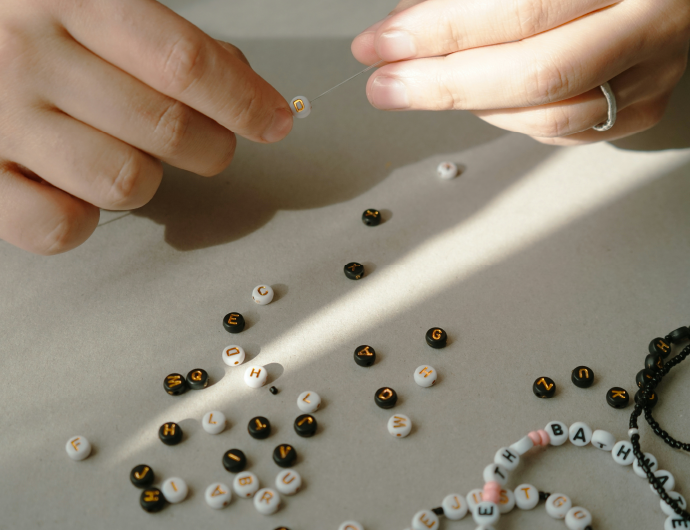
Provide children with large, colourful beads and sturdy laces to thread as a fine motor activity. This activity enhances hand-eye coordination and dexterity.
2. Cutting with Scissors
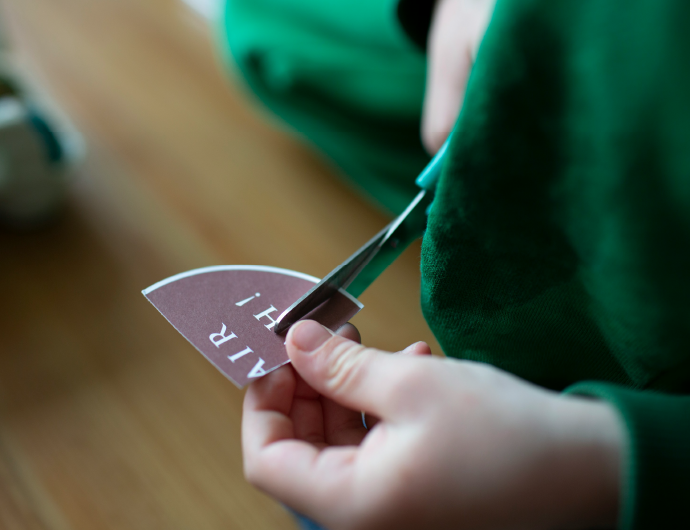
Provide child-safe scissors and paper for cutting along lines or creating shapes, enhancing hand control and coordination.
3. Building with Blocks
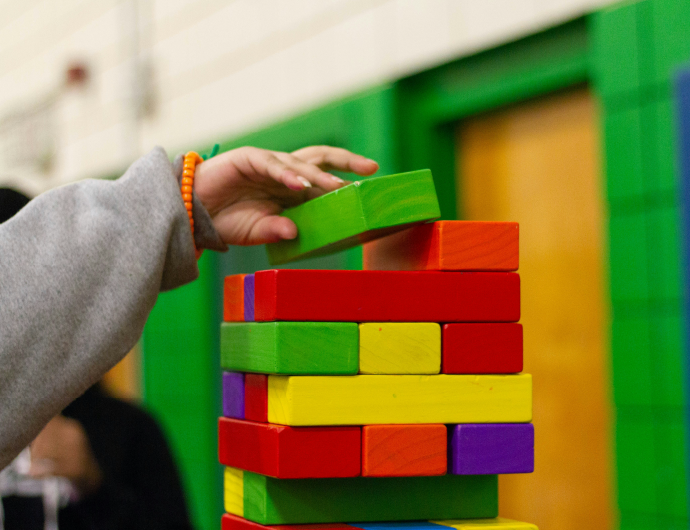
Stacking and connecting blocks require precision and strengthen the fingers and hands.
4. Drawing and Colouring
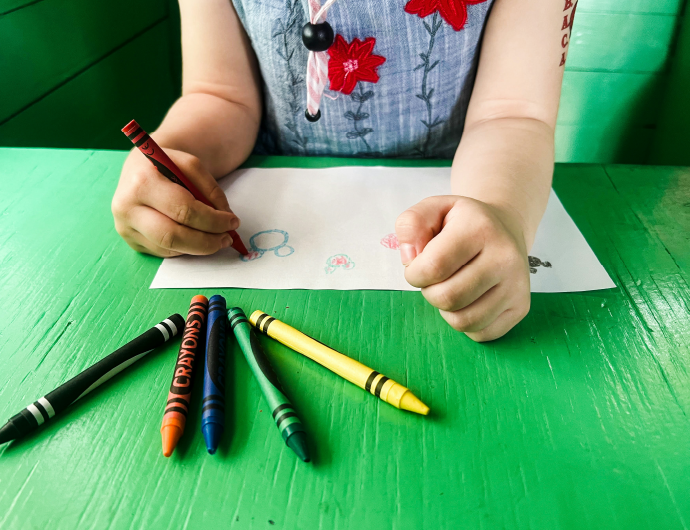
Encourage using crayons and pencils for drawing and colouring, promoting fine motor skill development, grip strength, and control.
5. Puzzles

Offer age-appropriate puzzles as fine motor skills activities to enhance problem-solving skills and fine motor development.
6. Zipping and Unzipping

Practice zipping and unzipping bags or clothing to develop finger strength and coordination.
7. Lacing Cards
Use cards with holes punched around the edges and provide laces for threading, promoting bilateral coordination.
8. Sponge Squeezing
Fill a basin with water and provide sponges for children to squeeze and transfer water between containers, enhancing hand strength.
9. Button Sorting
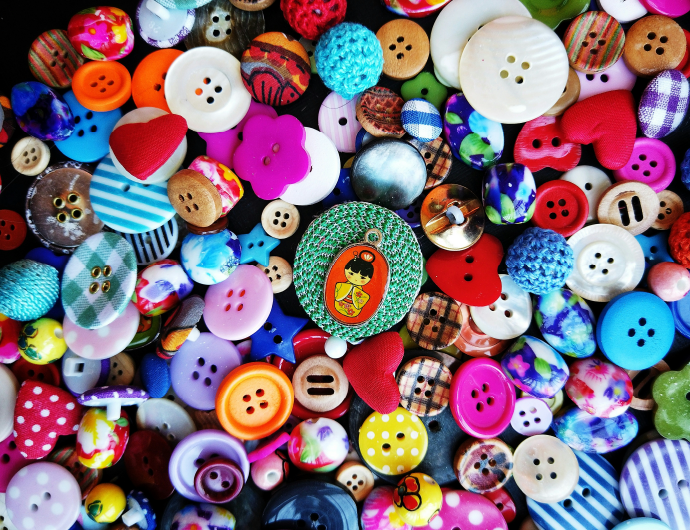
Offer a variety of buttons to sort by size, colour, or shape, improving fine motor control and categorisation skills.
10. Clothespin Clipping
Have children clip clothespins onto the edge of a container or card, which strengthens finger muscles.
11. Pom-Pom Transfer
Use tweezers or small tongs to transfer pom-poms from one container to another. This strengthens the pincer grasp and improves precision.
12. Threading Pasta
Use uncooked pasta with large holes and string for threading, enhancing coordination and dexterity.
13. Tearing Paper
Allow children to tear paper into strips or shapes, which builds hand strength and control.
14. Using Eye Droppers
Provide eye droppers and coloured water for children to transfer liquid between containers, refining the pincer grasp.
15. Pegboards
Offer pegboards and pegs for children to create patterns, enhancing hand-eye coordination and planning skills.
16. Sticker Play
Let children peel and place stickers onto paper, which aids in developing the pincer grasp and hand-eye coordination.
17. Bead Mazes
Use bead maze toys to guide beads along wires, promoting visual tracking and fine motor skills.
18. Hole Punching
Provide handheld hole punchers and paper for children to create holes, strengthening hand muscles.
19. Washing Toys
Set up a toy washing station with brushes and sponges, encouraging scrubbing motions that build hand strength.
20. Playdough Modelling
Encourage children to roll, pinch, and mould play dough into various shapes. This activity builds hand strength and creativity.
Nurturing Fine Motor Skills at Little Skool-House
At Little Skool-House, we understand the pivotal role that fine motor development plays in a child’s overall growth.
As the best premium preschool in Singapore, we thoughtfully designed our curriculum to incorporate activities that foster these skills, ensuring that children are well-prepared for future academic and life challenges.
Through engaging, hands-on experiences, we cultivate an environment where fine motor proficiency can flourish, laying a strong foundation for lifelong learning.
We also integrate fun fine motor activities to ensure children enjoy the learning process while developing essential skills.



